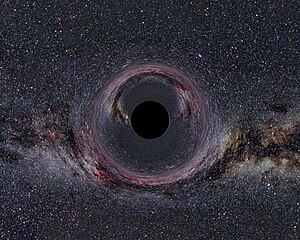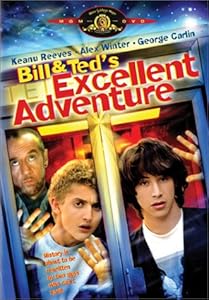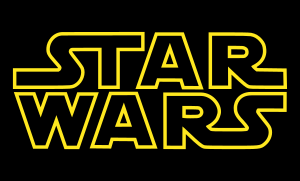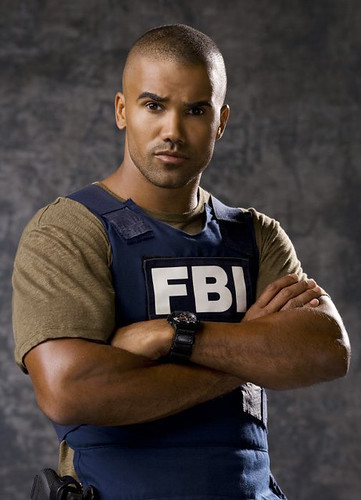George Lucas has gone slowly mad with power and is more than willing to overmilk the franchise simply for the sake of earning a few extra billion dollars. Thus, can you really say Darth Georgy
wouldn't agree to a complete reboot of the franchise, especially if it meant he could foist some new and expensive cinema tech into the market?
If, by some miracle, Lucas did greenlight a remake/restart/resurrection of Star Wars, we'd have to cast our favorite New Hope roles with contemporary thespians, ones that would breathe new life into the roles, conform to the demands of the modern marketplace (be affordable for a three picture deal and be willing to get tied to the role; think Zachary Quinto for the new Spock), and also not totally suck (looking at you, Hayden Christensen).
So here we go:
Luke Skywalker: Untapped potential is the key theme here, as all Luke needed was a little confidence and some opportunity to leave the farm behind. Plus, we now know going in that he's Darth Vader's kid, so there should be a little more obvious strength here than before. I go with
Michael Terry, best known as intern Wendell Bray from
Bones. He can do the lacking-in-confidence farmboy pretty well, but we've seen him man up and be a bit intimidating where necessary. Plus, he's a recognizable face that isn't typecast or priced beyond reason yet. You can build a franchise around this guy.
Han Solo: The definition of charming rogue, you need someone who can pull off smarmy but capable, to the point you'll buy him as a general two movies later. Hugh Jackman is the obvious choice here, but you could never afford him. Nathan Fillion could be had for a decent price, but he's done this role (only better) as Mal Reynolds from
Firefly. My choice?
Shemar Moore from Criminal Minds. Don't let his stint on the horrendous
Birds of Prey or
Soul Train fool you, this dude is charming as all get-out but can do intense when the scene calls for it. And, yes, I think a black dude can play Han, no problem. In a galaxy filled with various alien races, it's entirely possible to have at least one human lead that isn't a white guy.
Princess Leia: Again, we've got Vader's strength at work here, in someone who is already a leader (rebel spy, Senator, royalty) at a very young age. We have to believe she could kick your ass, despite being a freshman in college. Me, I go with
Emma Stone. Yes, she played the amazingly cool chubby-chaser in
Superbad, and did time in
The House Bunny, but here we have the height, the authoritative voice, the stare-you-down eyes and the on-screen gravitas to not be reduced to damsel in distress.
Obi-Wan Kenobi: You need charming, wisened, but someone who clearly could have been a soldier at one point. When he breaks bad, you need to believe it. And since this is a part that won't survive the first film, but will have cameos in most others, you can splurge a bit here on casting cost. The answer is
House's
Hugh Laurie, who is primed to remind the world that he isn't a misanthropic MD, but actually a charming Brit funnyman (
Black Adder, anyone?). He could play the mentor figure with the appropriate avuncular strength, then break out the Greg House menace when the lightsaber is unsheathed. Also, his real Brit accent is enough of a separator from his signature role that folks won't so easily think "Why does House have a lightsaber?" when they see it.
Darth Vader: The guy in the suit, sad to say, really doesn't matter. This is a role that's all about voice, and the next-gen James Earl Jones I'd call up is
Christopher Judge. Yes, you know him best as Teal'c from
Stargate SG-1 but he was also the menacing voice of Magneto from
X-men: Evolution, and that alone is evidence his got the voice chops for this role.
C-3PO: The man in the suit shouldn't even be a man, as I'd argue we need an all CGI Threepio akin to the androids from
I, Robot (and, yes, that's
all I'd crib from that trainwreck). Thus, this comes down to voice, and what you need here is a voice actor that can do mincing, officious, and snide without alienating the audience (this is harder than it seems).
Alexis Denisoff, whom fans will remember fondly as Wesley from
Buffy and
Angel, can bring a great deal to the role, not the least of which is a sense that someone would actually use Threepio as a competent ambassadorial aide.
R2-D2: Nobody would play Artoo, because
everybody would play Artoo.
As John Scalzi once snarked, building androids that can't speak in an age of cheap, ubiquitous AI is just stupid. Thus, if Artoo can't talk, he can't talk -- period. Speaking binary is a lame copout for showcasing Ben Burtt's comedic audio effects. Clearly Artoo has a holo-emitter and external speaker -- and he's obviously quite clever -- so I'd have Artoo's lines hacked together from clips he's recorded of everyone else, like a less lame version of Bumblebee's radio-speak from
Transformers. This make's Artoo's lines a treasure trove of Easter eggs, as obviously he'd have years of voiceclips to choose from, and we could sneak in some nods to previous versions of the Star Wars universe -- and other fanwanks -- thoughout his speech. And there's as much obvious but unforced comedic potential in this speech device than his chirps and twitters ever promised.
Chewbacca: So long as the dude is seven feet tall and comfy in the Wookiee suit, it doesn't matter. Therefore we give this part to
Shaq.



















